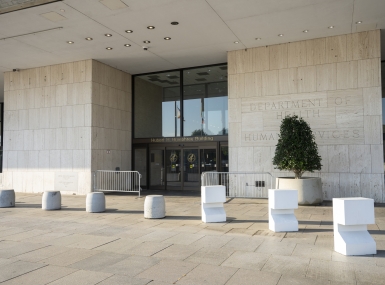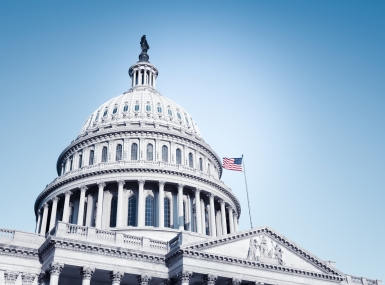Legislation introduced to extend child welfare waivers
Upcoming Events
Related News

Key Takeaways
Since the start of the 116th Congress, both chambers of Congress have introduced bipartisan legislation that would offer states and counties additional flexibility and resources for the Title IV-E child welfare waiver program under the Family First Prevention Services Act (FFPSA) (P.L. 115-123). Under the FFPSA legislation, which passed in 2018, the Title IV-E waiver program provides federal funding for state, county and tribal welfare agencies to create demonstrations aimed at improving outcomes for children and families involved with, or at risk of entering, the foster care system. The waiver program will expire at the end of FY 2019 on September 30, 2019.
Congress is now considering legislation that would extend Title IV-E waivers. Earlier this year, Sens. Dianne Feinstein (D-Calif.) and Marco Rubio (R-Fla.) introduced the State Flexibility for Family First Transitions Act (S. 107), which would extend waiver authority for two years through FY 2021. Across the Capitol, on June 5, Reps. Don Bacon (R-Neb.), Katie Hill (D-Calif.), Kathy Castor (D-Fla.) and Greg Steube (R-Fla.) introduced bipartisan, companion legislation that would enact the same measures.
Both the House and Senate bills would offer a critically needed two-year bridge that will provide additional time for states and counties to transition to FFPSA. Additional flexibility through the waivers could minimize anticipated cost-shifts to states and counties that could occur by limiting Title IV-E eligibility to children who would otherwise be eligible for such funds and enable counties to provide continuous care to at-risk children.
Going forward, both the House and Senate bills would need to be considered in the committees of jurisdiction and then passed by both chambers before being sent to the president's desk.
For more NACo resources on FFPSA, please see the following links:
- Click here to view NACo’s letter to Congress
- NACo Blog: Bipartisan legislation introduced to extend child welfare waivers important to counties
- NACo Webinar: Family First Prevention Services Act & Your County
- NACo Blog: President signs massive two-year budget pact

Attachments
Related News

U.S. Department of Health and Human Services announces major restructuring
On March 27, the U.S. Department of Health and Human Services (HHS) announced a sweeping reorganization that will consolidate agencies, shift key programs under a new framework and eliminate thousands of positions. This change brings HHS in line with President Trump's Executive Order, “Implementing the President’s ‘Department of Government Efficiency’ Workforce Optimization Initiative.”

U.S. Department of Health and Human Services moves to reduce public comment in rulemaking
On February 28, the U.S. Department of Health and Human Services (HHS) announced a policy change limiting public comment opportunities to only those required by law. Published in the Federal Register on March 3, the decision rescinds the “Richardson Waiver,” a 1971 directive from then-HHS Secretary Elliot Richardson that encouraged broader public input on regulations related to public benefits, grants and healthcare policies.

U.S. Congress begins work on budget reconciliation process: What this means for counties
The House and Senate Budget Committees have marked up Fiscal Year (FY) 2025 budget resolutions to initiate the budget reconciliation process to enact policy priorities without garnering bipartisan support, although the two chambers differ in their approach to drafting the legislation.